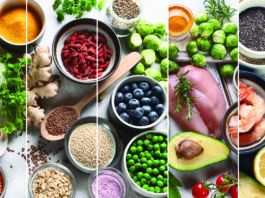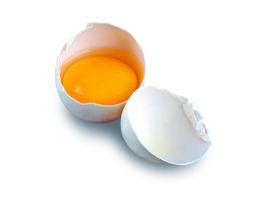Q: More and more, I am reading that wheat really is not so healthy...
Answer : A Nicola McKeown, PhD, director of Tufts Nutritional Epidemiology Program, responds: There is a great deal of testimonial evidence on whats known in the vernacular as wheat belly, but there is a lack of scientific evidence to support the claims...
Q: If you dont have a family history of breast cancer, do the cardiovascular...
Answer : AJoel B. Mason, MD, Tufts professor of medicine and nutrition and director of the HNRCA Vitamins & Carcinogenesis Laboratory, replies: In general, the increased risk of cancer associated with alcoholic beverages is observed...
Q: Are baked potatoes bad for you? I eat them for the potassium, because...
Answer : Alice H. Lichtenstein, DSc, director of Tufts HNRCA Cardiovascular Nutrition Laboratory, says that baked potatoes are one potential option to increase the potassium...
Q: How long do fresh, uncooked fruits and vegetables maintain their nutrients when stored...
Answer : ADiane L. McKay, PhD, an assistant professor at Tufts Friedman School, answers: In general, produce retains more of these nutrients when stored in the refrigerator ...
Q: I am a resident in a retirement home. One of the other residents...
According to Susan B. Roberts, PhD, director of Tufts HNRCA Energy Metabolism Laboratory and author of The I Diet www.myidiet.com, There is really nothing scientifically supporting this idea.
Q: Are the anthocyanidins and other strongly colored phytochemicals in fruit still present in...
Answer : Jeffrey B. Blumberg, PhD, director of Tufts HNRCA Antioxidants Research Laboratory, replies: According to the USDA Database for the Flavonoid Content of Selected Foods, jams, jellies...
Q: How long can cooked vegetables, as with left-overs, be stored in the refrigerator...
Answer : Diane L. McKay, PhD, an assistant professor at Tufts Friedman School, answers: For left-overs...
Q: Ive heard a lot about the nutritional virtues of red wine, especially resveratrol,...
Answer : Angelo Azzi, MD, PhD, senior scientist at Tufts HNRCA Vascular Biology Laboratory, explains that white wine does also contain resveratrol...
Q: Is it possible to get the recommended 10 milligrams of lutein from food?...
Answer : It should be, if one consumes a diet rich in fruits and vegetables. Lutein (from the Latin luteus meaning yellow...
Q: Would senior multivitamins contain enough of the AREDS2 nutrients to take instead of...
Answer : Probably. Check to see that the vitamin contains all the AREDS suggested vitamins: vitamins C, E, lutein, zinc."




























